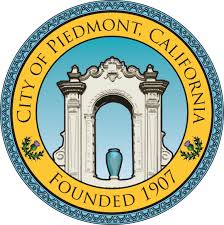On Monday, Piedmont’s City Council unanimously approved a second reading of the proposed reach codes. Ordinance 750 N.S. amends City Code regarding requirements for energy efficiency measures, photovoltaic systems, and all-electric construction in new or existing low-rise residential buildings. Ordinance 751 N.S. amends City Code to include requirements for the preparation of a Home Energy Audit or Home Energy Score for low-rise residential buildings. City staff initiated the process for adopting the reach codes 18 months ago. Along the way, there have been two public opinion surveys, several workshops, virtual town halls, two City Council meetings, and lots of feedback from community members.
Now that the reach codes have been adopted, what does that mean for residents? The proposed changes can lead to additional requirements during building projects, but not immediately.
Ordinance 750 N.S. will be sent to the California Energy Commission (CEC), where it will verify that the codes are at least as stringent as the California Energy Code. The reach codes are then posted for public comment for 60 days. At the end of the public comment period, CEC will approve or return the codes for edits. Additionally, the reach codes must be sent to the California Building Standards Commission for approval. If both of these commissions approve the reach codes, they will become part of the City’s building code. This means that projects will have to start abiding by them upon this approval date. We set an effective date so that the public will have ample notice of a definitive date that Ordinance 750 N.S. will go into effect on June 1, 2021. This is four months from today. Each project that requires a permit will work with a member of the City’s Planning Department, who will be able to explain the reach code requirements to applicants.
Ordinance 751 N.S. will go into effect on March 3, 2021, which is 30 days after City Council approved the code.
Some of the key components of the reach codes are as follows. More details can be found on the City’s website, or you can talk to a member of the Planning and Building Department when you apply for a permit.
- Newly constructed low-rise residential buildings and new detached ADU’s must use all electric building appliances. No gas lines can be hooked up to these buildings.
- Projects that include an entirely new level or expand the total roof area by 30% or more, must install solar panels on the roof.
- A renovation project that costs $25,000 or more must include an energy efficient insulation or heating system electrification improvement to include in the renovation.
- A renovation project that costs $100,000 or more must include two energy efficient insulation or heating system electrification improvements to include in the renovation.
- The energy efficient insulation or heating system requirement can be modified with a Home Energy Score of at least a 7 completed in the last five years. This modification is included so homes that have been pursuing energy efficiency measures can be recognized for their efforts.
- An application for an electrical panel upgrade must include capacity in the panel to accommodate future electrification of all appliances in the residence.
- An application for a kitchen or laundry area renovation must include electrical outlets for future appliance installations.
- At point of listing for sale of a property, a report from a Home Energy Audit or Home Energy Score must be provided to potential buyers and submitted to the City.
Notably, many of these requirements will not affect most projects in Piedmont. Approximately, 20-25% of renovation projects cost over $25,000.
As has been said before, these reach codes are put in place in order to reduce Piedmont’s natural gas emissions. Over 90% of emissions come from Piedmont residential living units. The reach codes are intended to slow natural gas usage, while still meeting the community standards that were published in the City’s Climate Action Plan. Piedmont is not alone in this initiative. Dozens of municipalities have passed reach codes in California (you can see a map here).
The California Energy Commission’s next update of statewide building codes (Title 24) will be implemented in 2023. Until then, these reach codes will help Piedmont homes become more energy efficient while reducing greenhouse gas emissions.
For questions, please contact the planner working on your home renovation, or the City’s Sustainability Program Manager, Alyssa Dykman (adykman@piedmont.ca.gov). Further educational information and resources will be posted on the City’s website.
